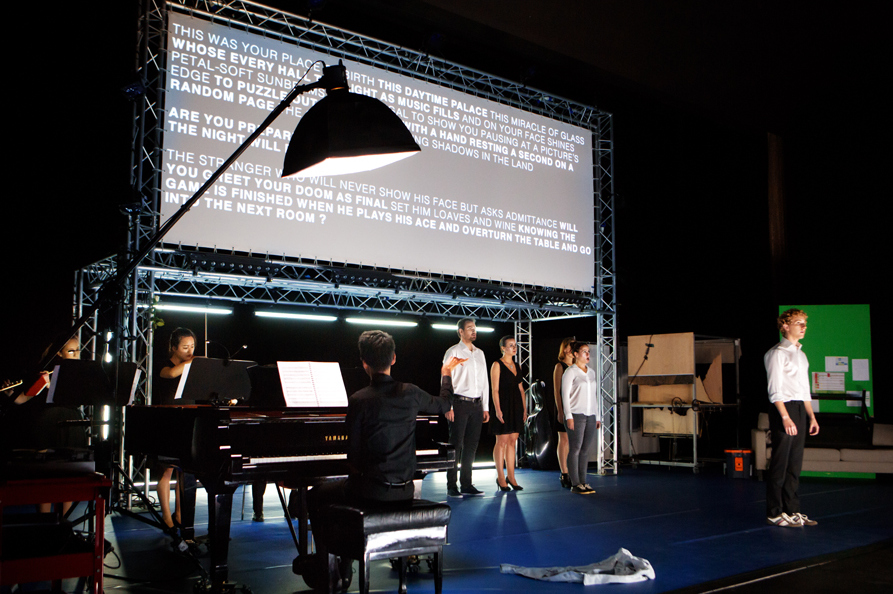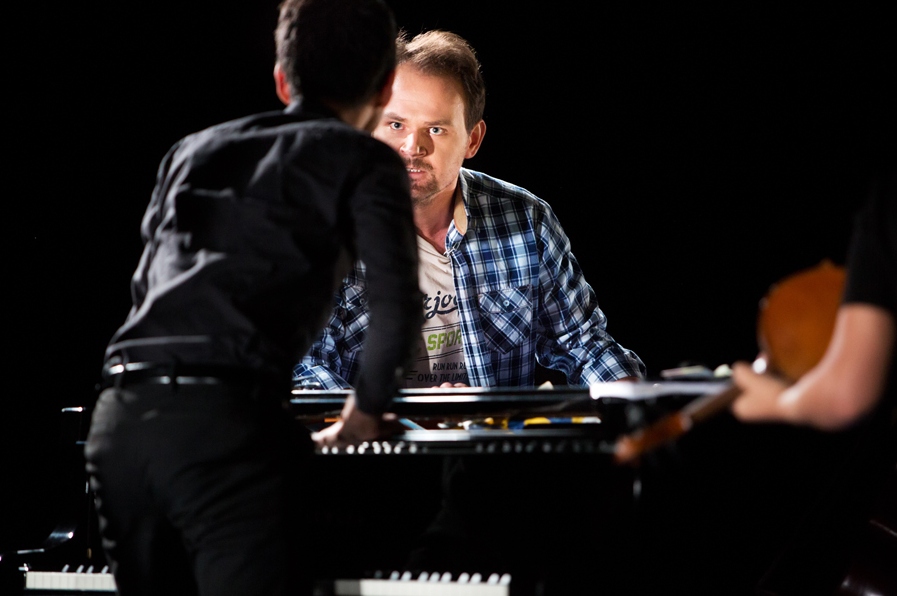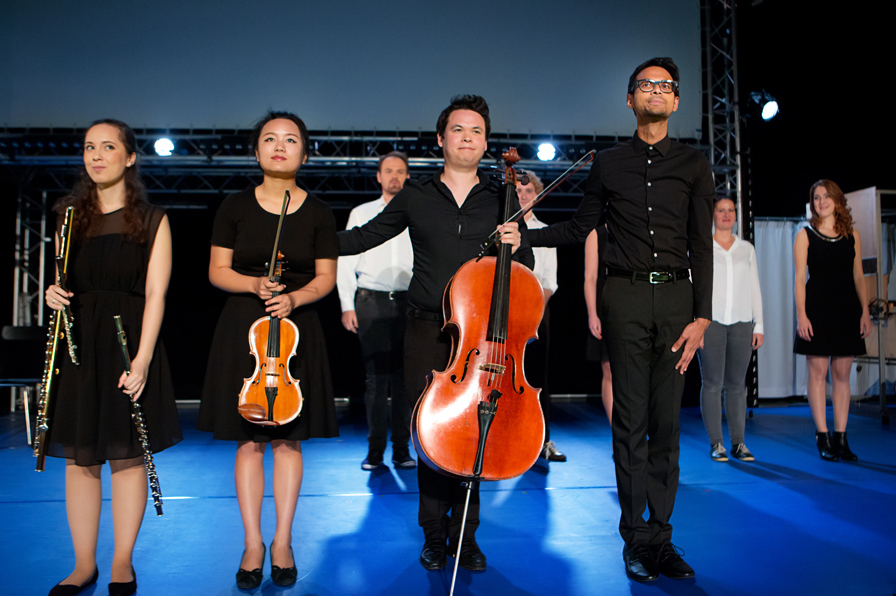As the hand-held credits popped up on screen to pianist and musical director Manoj Kamps's superb quartet arrangement of Mozart's Magic Flute Overture, the European Union's Culture Programme logo brought a spontaneous burst of applause. Not the norm for Suffolk this week, I'm told, but this audience knew how international opera is, how we're all connected in Europe's musical world.
A year and a half after its inception as a collaboration between the Aix-en-Provence Festival and the European Network of Opera Academies – I was there at the very first meeting but had not seen the show until last night – this operatic adventure, pasticcio, call it what you will, features 11 different nationalities among its creative team and composers of nine countries spanning a period from 1689 to 2015. It ended up last night at the Aldeburgh Festival having visited six other European venues. Be With Me Now ought to be playing in London every night until the referendum, after which one might optimistically hope that the strange and powerfully performed epilogue for five singers and four instrumentalists, Vasco Mendonça's specially-commissioned What the Night Brings (its accompanying action pictured below), might temporarily be replaced by a more jubilant finale.

"Stronger together" is only one of many messages in this layered hybrid. Director Julien Fišera and dramaturg Isabelle Kranabetter have devised a mini quest opera analogous to The Magic Flute, with Mozart's music beginning and ending the personal love-story strain which runs both on screen, in the beautifully composed video work of Jérémie Scheidler and Pascal Poissonnier, and on stage where a group of musicians lose their Tamino (Gwilym Bowen). He walks out on what looks like a recording session for a playful screen rendering of the Serpent's attack and the Three Ladies' rescue in the same style as Complicite's triumphant ENO Flute. From that first gathering in January 2015, I hadn't anticipated how funny parts of this fantasia could be.
The camera followers our tenor backstage and into a taxi, and he's off in search of memories of the girl who's just dumped him by text (Rannveig Káradóttir). The remaining artists comment on and counterpoint his journeys to European cities with operatic meditations on love. Katharine Dain and Kinga Borowska play Bellini's Romeo and Juliet to a Verona perumbulation, Borowska bursts into a joyous zarzuela number as our hero watches a dance class in Madrid.

Charismatic young Polish baritone Tomasz Kumiega (pictured above) gets increasingly enthusiastic instrumental support for Britten's cabaret song "Tell me the truth about love" as Bowen's character finds a photo of his beloved inside a score at Aldeburgh's Red House, and gives a Gerhaher-worthy interpretation of Wolfram's "O du mein holdes Abendstern" as the unhappy wanderer curls up in a blanket beneath a Wagner memorial in Munich (a superb held composition, this). It should be noted that, with the apt exception of Verona which simply can't help looking beautiful, none of the European cities gets the rose-tinted Woody Allen view; the video work favours the contemporary and the alienating.
There's disconcerting contemporary music, too. Melancholy meltdown by rivers in Brussels and Ghent is inscaped by "Halt" from Wolfgang Mitterer's Im Sturm and Dan Janssens' Tristia, the production's second special commission and tele-conducted by the composer from the Belgian water's edge. The elusive heroine's parallel crisis is resolved by Katharine Dain's "I go to him" from Stravinsky's The Rake's Progress, a better performance than any I've heard in the opera house, and the agony prolonged by Káradóttir's limpid, unaccompanied Handel "Piangerò" as she arrives in the studio, turning to a joyful "Tamino mein" as her love comes back to his starting point. The long Mendonça setting is justified by an uncertain future for the relationship, but we all recognise that "What the Night Brings" may, next week and in America later in the year, affect us all.

Any faults? Only that it could have been a quarter of an hour longer so that we could have heard a bit more from the soprano and tenor lovers; the show could easily take 90 minutes. But spotlighting the singers is not really this perfectly fused piece of music theatre's intent, and its series of contrasts is already fine-tuned. The instrumentalists, it must be added, are just as malleable as the singers and play their instruments in various positions and different parts of the stage; even the piano gets moved around by the performers (pictured above: Ana Filipe Lima, Fanglei Liu, Sébastien Van Kuijk and Manoj Kamps). This is the official end of the tour, but I see no reason why such a fine piece of work, promoting such an important European message, shouldn't be seen in many more theatres – not least the Linbury, when it reopens – around the world.















Add comment